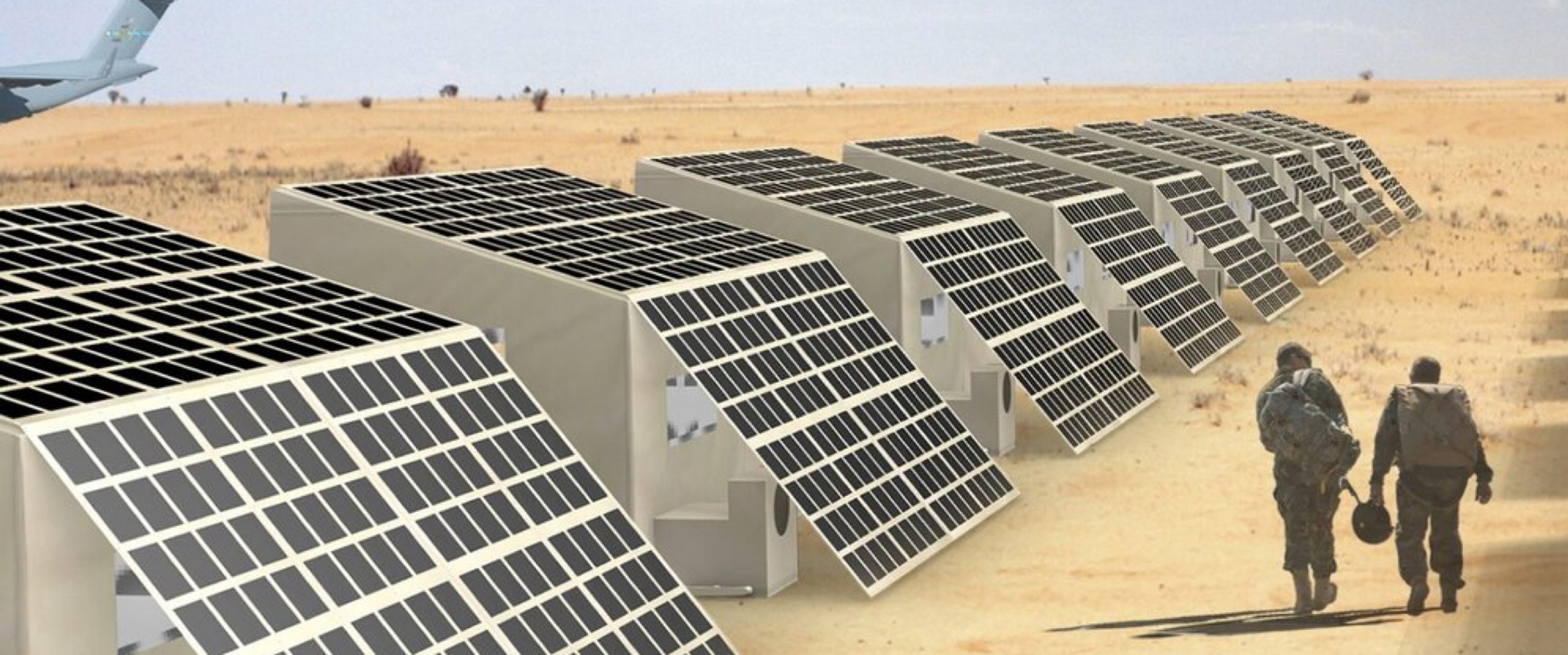CBS 19 NEWS NOW | April 7, 2020
BROOKLYN, NEW YORK, April 7, 2020 — PVILION, a leading solar powered fabric provider, announced it has been awarded a Phase II Small Business Innovation Research (SBIR) contract by the United State Air Force (USAF) to continue its development of rapidly deployable, solar powered structures.
Through a competitive awards-based program, the Small Business Innovation Research (SBIR) Program enables small businesses to explore their technological potential and provides the incentive to profit from its commercialization.
The USAF’s Rapid Sustainment Office (RSO) and AFWERX have partnered to streamline the Small Business Innovation Research process in an attempt to speed up the experience, broaden the pool of potential applicants and decrease bureaucratic overhead. The RSO’s goal is to increase mission readiness by rapidly identifying, applying, and scaling technology essential to the operation and sustainment of the United States Air Force.
In moments of crisis, the USAF needs to be able to deploy structures in forward areas to support personnel, equipment and operation centers. These structures need to be agile in that they must be easy to set up quickly and be independently powered. Additionally, the structures can provide climate control.
The USAF has favorably evaluated the products Pvilion presented for cost, complexity, sustainability, required manual labor as well as for energy independence all with the goal of maximizing mission-objective readiness.
Pvilion’s solar technology is significantly lighter and more adaptable than traditional solar options. It is integrated entirely into a system already being installed; e.g., a tent, shade canopy, hangar, etc. With fully integrated photovoltaic fabric panels, Pvilion’s structures allow for the multi-capability use by providing power, shelter, lighting, and climate control.
Pvilion’s numerous commercial customers use its solar fabric technology in structures used for events such as music festivals, in temporary industrial worksites and in structures found in parks, municipalities, universities, and corporate campuses. Pvilion’s solar fabric products have been commercially available for eight years.
Pvilion has successfully developed ways to modify framing systems and fabric to be built lighter in weight with highly insulated walls. Pvilion’s high efficiency structures are integrated with solar cells for a turnkey solution that includes climate control, improved thermal performance, and increased equipment performance and are well suited for on-site additive manufacturing. The integrated technologies will reduce cooling power requirements while simultaneously generating the power needed. This is the first product of its kind to properly align solar, energy storage, cooling and heating for a fully off generator expeditionary system capable of operating in most climate conditions. The lighter technology and increased thermal performance specified by the Air Force will have applications in the commercial market, as well. Pvilion’s product will both reduce the manpower required to set up renewable energy and shelter solutions, while also reducing the dependency on costly, loud, and environmentally dirty diesel generators.
“We are thrilled to have won the award and we are excited to have the opportunity to work with the USAF,” said Colin Touhey, Engineer and Pvilion CEO. “We’re now working hard to quickly delivery solar structures to Airmen who need them most. In this challenging time, instant access shelter, power, and climate control is key. This project is very important to Pvilion and, I believe, the nation as whole,” added Touhey. “My partners, Robert Lerner, Todd Dalland, and I, have been developing this technology and fielding it all over the world, and there’s no greater tent customer than the US Military. This project means the world to us.”
For more information contact us here
To see the original article click here
 news + press
news + press
